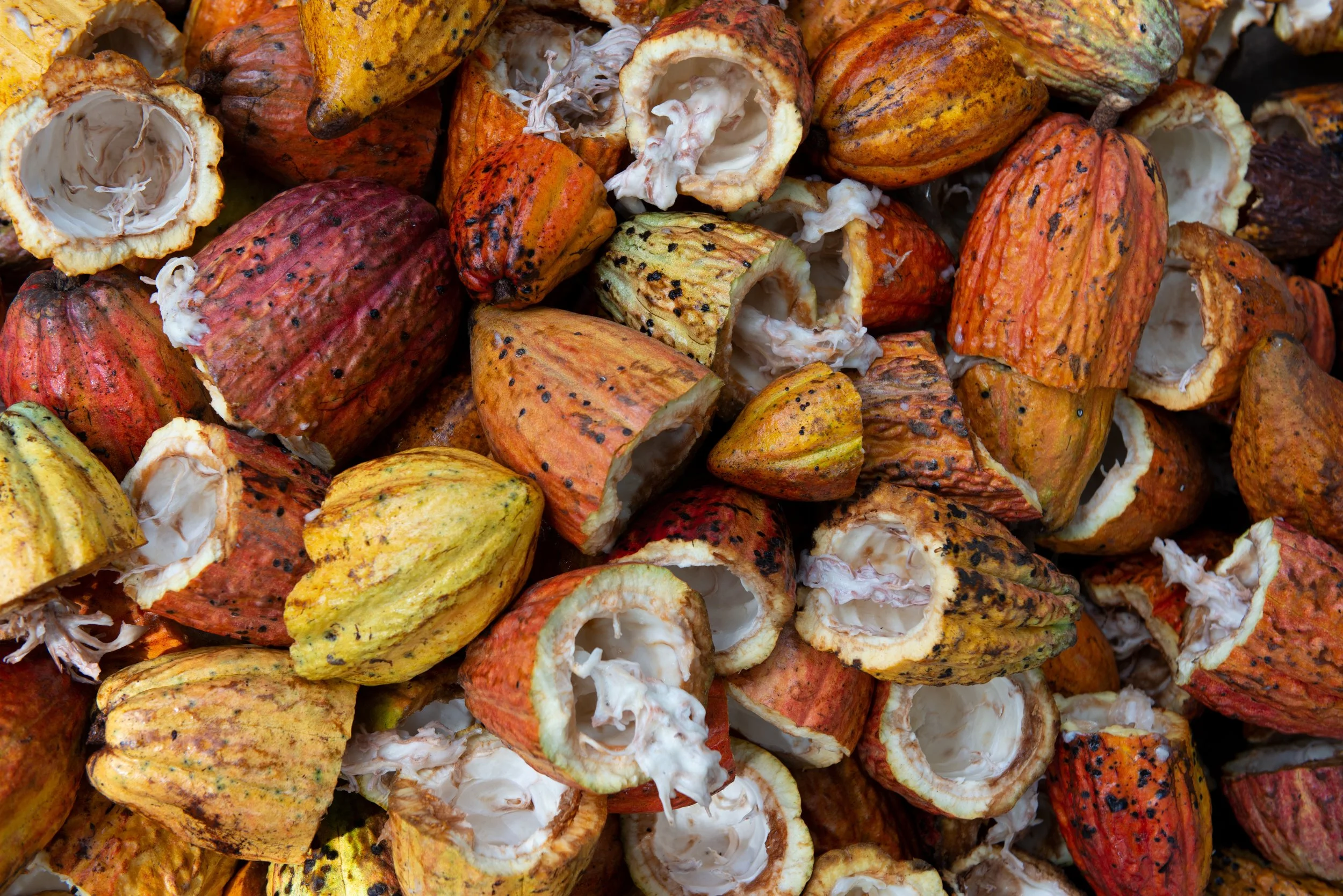Cocoa is the perfect example of the need for sustainability
Who doesn’t like chocolate? Chocolate consumption is increasing and it’s a staple flavour across the board, meaning production needs to rise to meet demand.
The Mighty Earth Report, Chocolate’s Dark Secret, highlights the devastating effect malpractice has had on protected national forests. The report claims cocoa production has led to the loss of a quarter of Côte d’Ivoire’s 291,000 acres of protected forest between 2001 and 2014, and ten percent of Ghana’s entire tree cover. Côte d’Ivoire is the world’s largest producer of cocoa and the findings in the report mean at least 17 percent of the world’s yearly cocoa production comes from protected areas, with production in Ghana, Indonesia and Latin America also taking place in protected forests. According to the report, ‘the world consumes close to 3 million tons of chocolate and other cocoa products’, with global demand increasing by 2 to 5 percent each year.
In much the same way as plastic straws, the onus needs to be on companies to practice sustainable and responsible production, rather than on consumers to cut down. Every little helps from the individual, but attention needs to focus on suppliers.
Company-led sustainability programs are crucial, as is ensuring cocoa suppliers are members of the World Cocoa Foundation and are farming responsibly. Happily, the world’s leading cocoa and chocolate companies are working with the governments of Côte d’Ivoire and Ghana on plans to end deforestation in the cocoa supply chain. There are 35 industry players committed to the Framework for Action, intended to achieve a deforestation-free cocoa supply chain, comprising the Cocoa & Forests Initiative, which aims to eradicate cocoa deforestation and will announce a common framework for action in November. Coordinated by the World Cocoa Foundation, the Sustainable Trade Initiative and The Prince of Wales’ International Sustainability Unit, partners are working together to end deforestation, protect forests and help the farmers who rely on farming in protected forest areas.
Focusing on the farmers, The Scientific Committee of the International Symposium on Cocoa Research says ‘chocolate companies should rethink cocoa sustainability programs to reverse low adoption rates for training and technology’, which could be the reason for the continued overlooking of best practices on the ground. The majority of cocoa producers are smallholder farmers in West Africa; independent, earning very little and now suffering from the uncertainty and volatility in cocoa market prices. Investing in production and following best practice to increase yields may not pay off due to fluctuating cocoa prices and the risk of market crash. One surprising fact from the International Symposium on Cocoa Research 2017, is the average age of a cocoa farmer, according to Fairtrade, is 50, while life expectancy in Cote d’Ivoire is 53. Cocoa production is facing a labour shortage, as the ageing population faces poor health and a short life expectancy, while the younger generation leave the family farms for the cities, seeking better prospects.
Sustainability efforts need to consider the people as well as the planet and invest in local infrastructure and community health, pay more and financially support the younger generations to encourage their retention. ■














Single-use plastic is now undoubtedly passé and plastic straws are the latest disposable commodity to find themselves in the firing line.